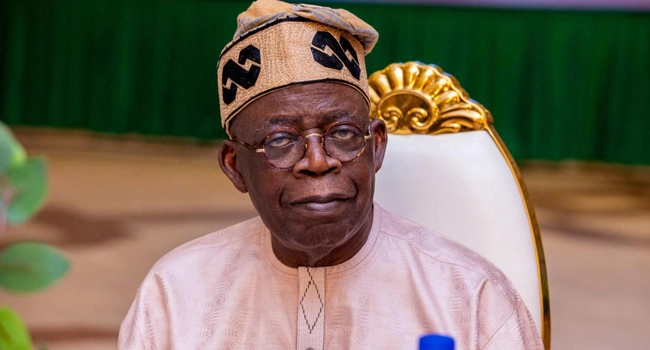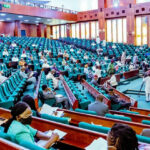
THREE months into his Presidential term, the serial disregard for the rule of law and disobedience of court orders inherited from his predecessor has continued unabated under Bola Tinubu. As usual, the Department of State Services is leading the assault, cementing its reputation for impunity. Recently, Nicholas Oweibo, a judge of the Federal High Court, Lagos, while presiding over the illegal firearm possession charge against Godwin Emefiele, the suspended Governor of the Central Bank of Nigeria, voiced a strong rebuke of the Federal Government for its persistent disregard of court orders. Unless he moves quickly to rein in the officials and agencies trampling on the law, Tinubu’s fraying democratic credentials will be tarnished beyond repair.
Exasperated by the defiance of state authorities, Oweibo expressed frustration at the government’s penchant of rendering court orders ineffectual through disobedience.
Striking out the charge against Emefiele for want of diligent prosecution, the judge said, “The prosecution has shown signs that they (government) are not law-abiding and have no respect for the court. The court cannot force them. What good will it be for the defendant who is in custody? Of what benefit will it be to keep the file in the court’s docket? I believe the proper thing is to allow them to withdraw the charge. They can simply abandon it and the court will still have to strike it out for lack of diligent prosecution. The application to withdraw is hereby granted.”
Tinubu, who was very active in the struggle for Nigeria’s democracy, frequently relishes describing himself as a committed democrat; but democracy is built on, and sustained in practice by submission to the supremacy of the rule of law.The United Nations declares, “The rule of law, defended by an independent judiciary, ensures that civil and political rights and civil liberties are safe and that the equality and dignity of all citizens are not at risk.”
Tinubu should break away decisively from the impunity of the Muhammadu Buhari administration whose main battle axe against civil rights and court orders was the DSS. Tinubu’s enthusiastic retention of its leadership while he dropped the military, customs, and police chiefs he inherited suggests a discomfiting lack of revulsion, or indifference to that agency’s habitual disregard for the rule of law.
He must, going forward, ensure the strict obedience to the law, and strengthen statutory institutions to allow them operate without interference.
The World Justice Project, an NGO, describes the rule of law as “a durable system of laws, institutions, norms, and community commitment which ensures accountability, just law, open government, and accessible and impartial justice.”
Apart from arbitrary arrests, detentions and assault on the media and the right to peaceful assembly, the Nigerian government, its agencies, and agents frequently disrespect the courts. Disobedience of court orders however undermines democracy and the rule of law. A research paper published under the auspices of the Kenya Law School noted, “The greatest recipe for chaos in every democratic society is disobedience of court orders.” It sets the stage for eventual resort to self-help.
But many Nigerian officials do not care. Nnamdi Kanu, leader of the Indigenous Peoples of Biafra separatist group, has remained in DSS custody despite being released on bail by the Court of Appeal in 2022. Since July 2021, the leader of the Islamic Movement in Nigeria, Ibrahim el-Zakzaky, and his wife, Zeenah, have been denied their seized passports in defiance of an order by the Kaduna High Court directing their discharge and the release for medical travel.
In Ilorin, Kwara State, the police, and the state government have ganged up against traditionalists seeking to exercise their rights. Three of the victims are in court battling for freedom. Abdulrasheed Bawa, the suspended Chairman of the Economic and Financial Crimes Commission, has spent almost three months in DSS captivity without trial. Tinubu has so far ignored an FHC, Abuja ruling ordering him to publish full details of the management of the $5 billion looted by the late dictator, Sani Abacha, and recovered by the previous governments.
Tinubu should urgently reform security agencies, especially the DSS. He and the new Attorney-General of the Federation, Lateef Fagbemi, have a sacred responsibility to restore the rule of law, ensure respect for court orders and deepen democracy in Nigeria.





